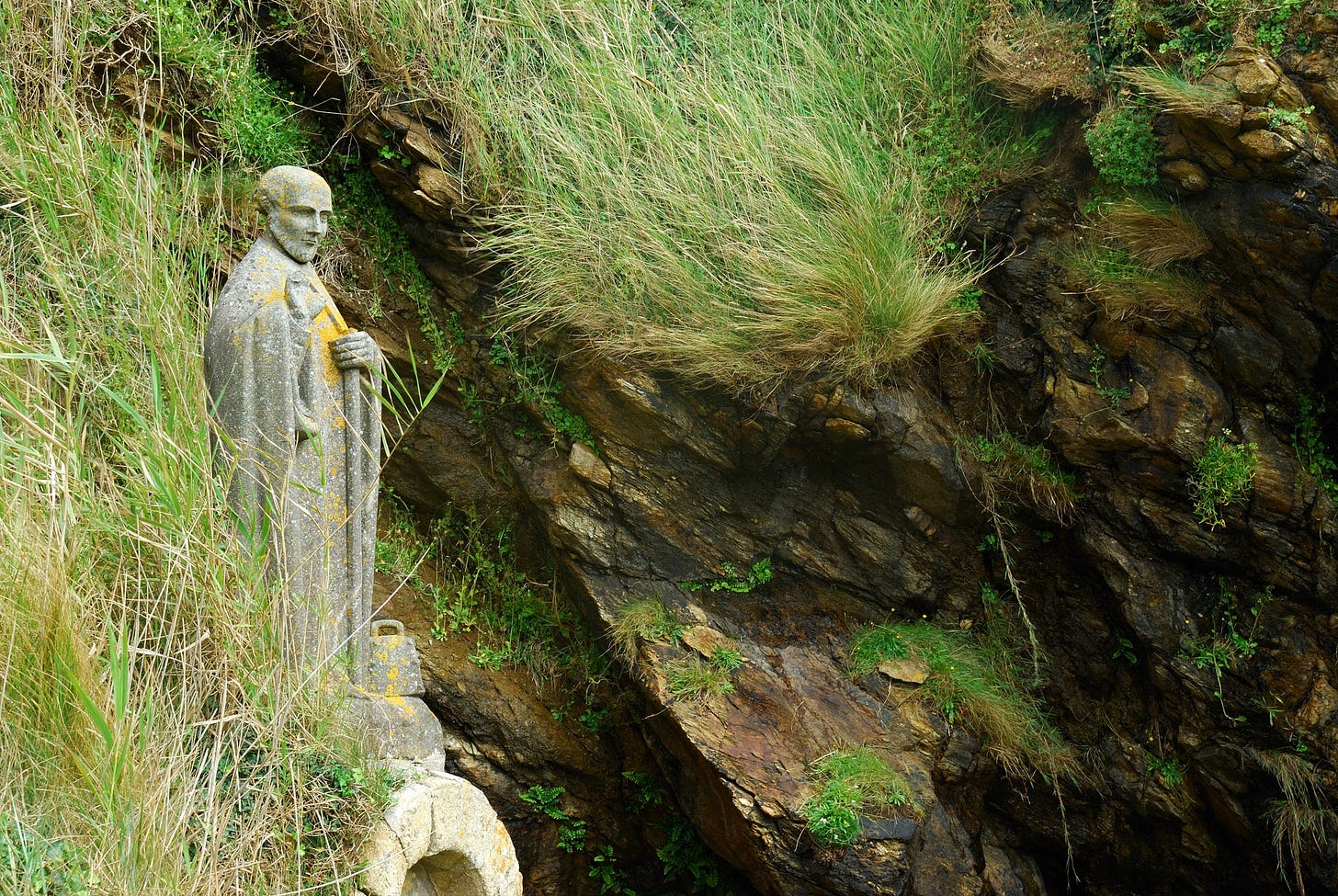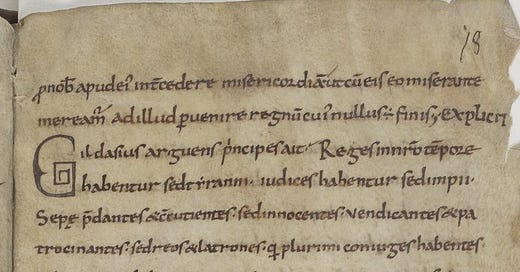Hello there! I’m currently studying for a PhD in Archaeology at Oxford, researching the role of women in the social and political developments of 6th- and 7th-century England and France. With a worldwide readership of over 4,400 PLUS featuring regularly in Substack’s top 100 fastest-growing history publications, I share medieval history as you rarely hear it. I combine written and archaeological evidence to share the experiences of overshadowed individuals, ask challenging questions of dominant interpretations, and recommend books and writers doing a wonderful job of unearthing the past. My top 3 posts of all time have been a review of Rebecca Stott’s Dark Earth, biography of Æthelthryth of the Northumbrians (the queen who wouldn’t sleep with her husband), and my guide to Oxford’s top medieval moments.
A British Voice From the Twilight of Roman Britain
Gildas and De Excidio

When a middle-aged British monk sat down in the first half of the sixth century to pen a scathing account of post-Roman politics, he couldn’t have known that his report would become the only surviving native testimony of life in Britain as it plunged into a period of rapid and sweeping change.
Following an occupation of more than three centuries, the recall of Roman troops from the province of Britannia to Continental Europe in A.D. 410 signalled the end of Imperial rule of these islands. Though there had been decline in the fourth century, inclusion within the infrastructure of the Roman Empire had left behind a paper trail that has allowed historians to build a detailed picture of Romano-British life, particularly when this is combined with the abundant archaeological evidence.
All that changed, however, when the Romans retreated.
For close to 200 years there is almost complete literary silence, and the physical traces of settlement during these years are so ephemeral as to be nearly non-existent. Stone buildings were replaced with wooden ones when they started to crumble, much easier to construct though colder and less durable in the harsh northern weather. Cut off from the trade networks of the Empire, locally-produced pottery filled these rectangular thatched homes, though this too was less durable than the high-quality ceramics their ancestors had been accustomed to. The skills of writing and manuscript production too gradually faded away as industries relied on other methods for remembering important information, such as oral rehearsal, which would eventually lead to a rich culture of epic poetry such as is famously celebrated in the Beowulf poem.
It would be easy to see this period as one of decline, though staunch early medievalists might argue rather for innovation and cultural fusion to be the prevailing themes of this era.
Decline, however, is how the only contemporary voice saw the culture around him.




